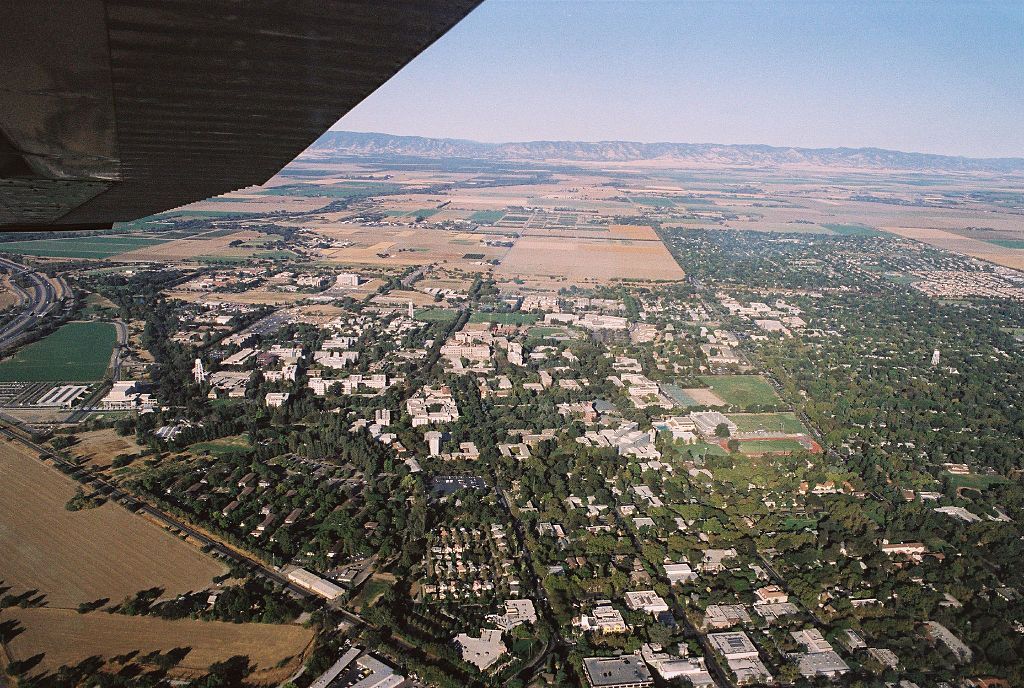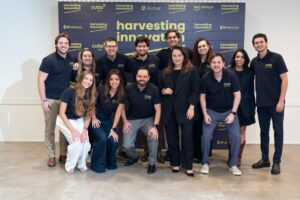As Barry Broome stands on the 25th floor looking out over the city of Sacramento, pointing out recent additions and those yet to come, the city might as well be Las Vegas or Dubai. He talks about economic development in terms of winners and losers and is fiercely competitive with other cities in California and around the country.
As he tells it, Sacramento has been content with its lot for the last few decades and never felt the need to manage it actively. Its proximity to San Francisco and Silicon Valley bled up into Northern California where rents are cheaper. UC Davis, one of the most prestigious agriculture universities in the world and 15 miles from downtown, has always been a fixture of the Sacramento landscape and agricultural talent naturally landed in Sacramento.
It wasn’t until a group of 15 CEOs got together to form the The Greater Sacramento Economic Council (GSEC) that Broome — the organization’s president and CEO — began to organize the city’s efforts to carve out a piece of the tech scene just 90 miles to the south, and thanks to UC Davis and nearly 250,000 acres of farmland, that means agtech too.
That council has 40 CEOs today, each contributing $100,000 to keep the organization going. Broome says the commitment of local leaders is key, “If you look at these markets that have really thrived, they’re really CEO-led. You name a city that’s booming, and with a rare exception, that’s at the helm of CEOs,” said Broome.
So Broome has been traveling down to Silicon Valley to spread the word about Sacramento, seeking not necessarily a migration from San Jose and San Francisco, but to catch the startups that might leave the state because of high costs and show them that they can get the same resources of other, less expensive cities just a few hours up the highway.
Sacramento’s agtech scene, however, Broome thinks will be homegrown. Sacramento is the largest city in California’s Central Valley, a rich agricultural region about the size of Denmark and the world’s largest patch of Class 1 soil – meaning it is the most amenable to growing almost anything. The area gets 300 days of sunshine a year and almost zero snow. Major crops grown there include tomatoes, almonds, grapes, cotton, apricots, and asparagus.
All this combined with the power of UC Davis to draw seasoned experts and new talent has made the immediate area an ideal jumping off point for startups like California Safe Soil, Fishrock Labs, and Agraquest, which was acquired by Bayer in 2012 for over $400 million. In order to retain the local talent, Agraquest became Bayer’s global headquarters for biologics in West Sacramento.
UC Davis has research institutes around sustainable agriculture, honey bees, aquaculture, olive cultivation, food safety and security seed biotechnology, plant breeding, urban horticulture along with the prestigious Robert Mondavi Institute for Wine and Food Science among others.
“We’re located here because UC Davis is the premiere ag university in the country,” said Denise Manker, director of global agronomic development for biologics at Bayer CropScience.
“There is an importance to being close to your growers. We do think that its really valuable for our scientists to meet growers and interact with them.”
UC Davis ranks number two in the world (one in the US) for agricultural and forestry and the university has set up several services to help researchers and students turn their ideas into businesses. UC Davis Venture Catalyst provides legal services and other advice to help commercialize research. Further, Seed Central at UC Davis is a public private partnership meant to increase collaboration between the university and private enterprise in the field of seed science.
“Just about anybody in the seed business is in Seed Central at UC Davis,” said Broome.
The research potential of UC Davis, plus the regulatory bodies of California’s capital, were key for Dan Morash of California Safe Soil who piloted his food waste-to-fertilizer technology in West Sacramento and has opened a commercial plant in McClellan, just 10 miles from downtown Sacramento.
“Sacramento is where the regulators are and if you’re going to build any kind of plant, you better know your way around regulations. We figured if we could get clearance to build a plant in California, we could build one anywhere.”
Venture growth has been slow in Sacramento and Northern California generally with only $152.3 million in VC deals in 2016 across all sectors: compared to San Diego’s $1.2 billion, LA’s nearly $5 billion and San Francisco’s $25 billion, according to the San Francisco Center for Economic Growth. But the city is working on it. Just last month the city council approved a $10 million fund for early stage startups that will reportedly focus on government, agriculture, and biotech.
Mike Teel, CEO of Raley’s Supermarkets and executive board member for the GSEC says he’s committing time and money to stoking the startup ecosystem in Sacramento because it’s good for business
“More jobs equal more mouths to feed which means more business. Growth is hard in today’s world. My company’s been hovering around the $3 billion mark for 15 years. I see this as an opportunity,” said Teel.
Quick Facts on Sacramento
Ag Universities: UC Davis, UC Berkeley
Incubators & Accelerators & Spaces:
AgStart – a nonprofit, non-equity incubator program and workspace offering mentoring and ag industry access
UC Davis-HM.CLAUSE Life Science Innovation Center- a business incubator space with biochemistry, molecular biology and chemistry lab space, and greenhouse space
Davis Roots Incubator – a nonprofit incubator for Davis-based startups offering direct mentoring, networking connections, as well as space and development support, no funding
Sacramento Innovation Fund issues small grants to startups and existing companies with the goal of bringing more businesses and talent to Sacramento
Relevant Funds:
Group of individual investors focused on investing in Sacramento and northern California-based early stage startups
Early stage venture firm that invests in Marrone Bio Innovations, biological pesticides.
Large Strategic Presence: Bayer Biologicals, Monsanto, Syngenta Seed Research
Major Crops in the area: tomatoes, almonds, grapes, cotton, apricots, and asparagus
Acres growing: 246,840 acres (census data for Sacramento County)





